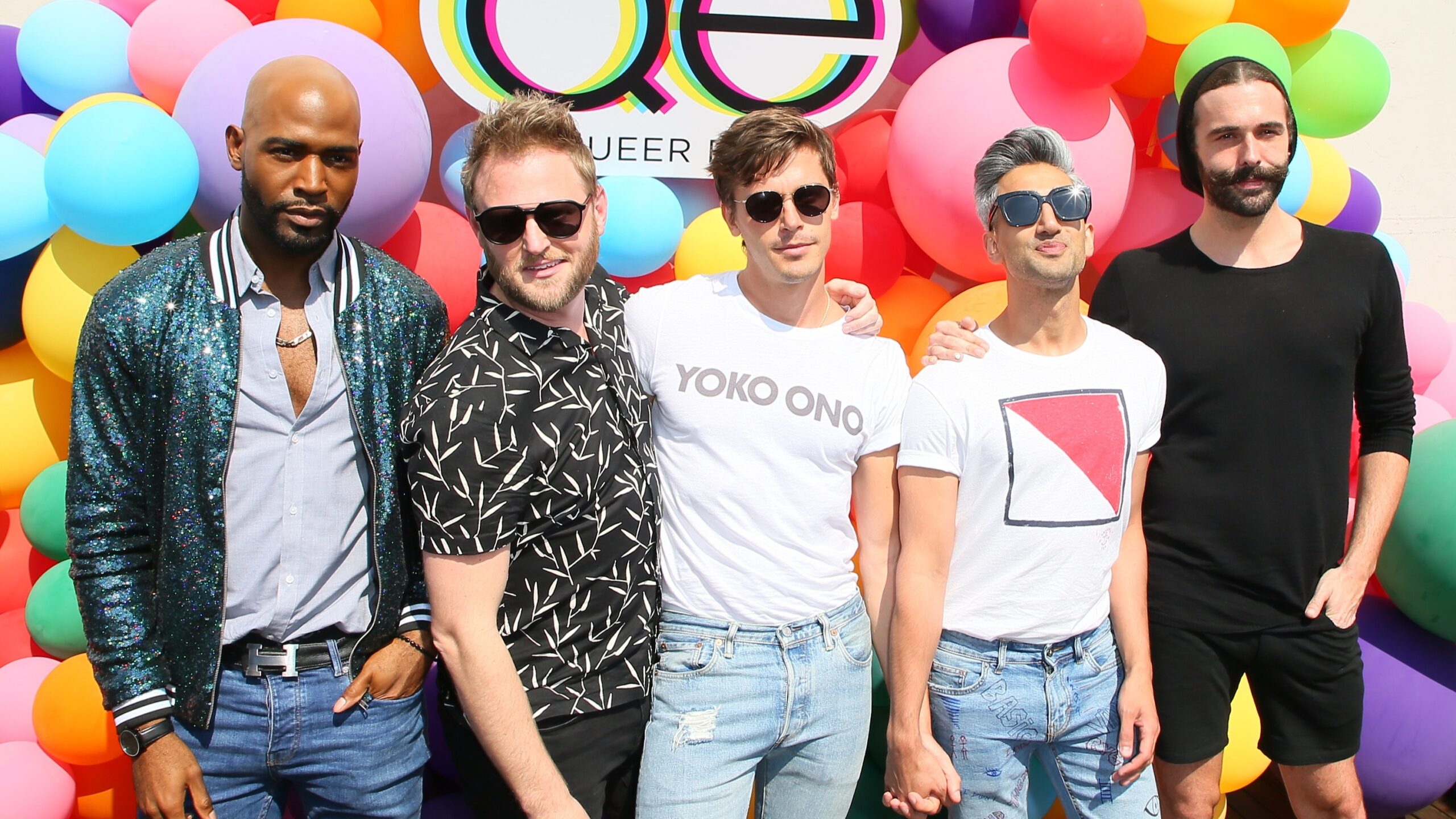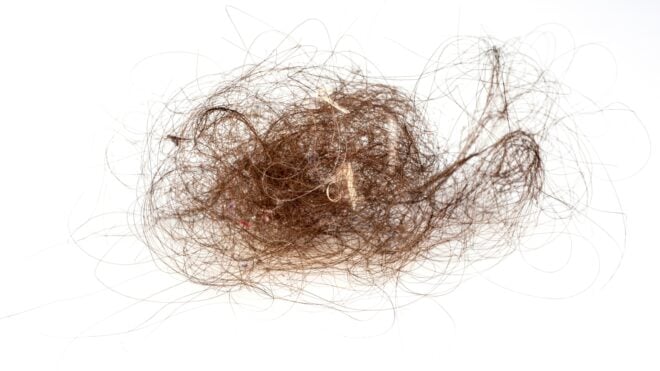
When Netflix launched its reboot Queer Eye in 2018, the show was celebrated as "an antidote to our culture of toxic masculinity" by outlets such as Harper's Bazaar. And while that may well be true (it is super refreshing to watch the Fab Five's interactions with people from all walks of life), in the years that have followed the show has really become a safe space in which its viewers and fans really feel like they are at home.
I have a super-emotional relationship with the show, in part because I am a super-emotional person, but also because my teen son and I have been watching it together since its debut, and the show's topics, experiences, and people have really shaped our individual worldviews. When the idea of Queer Eyeing my life was presented to me, it was a challenge I was into. After all, only good things could happen, right?
What Queer Eyeing My Life Means to Me
First things first: To me, Queer Eyeing my life means applying five major themes (one from each member of the cast) to the corresponding aspects of my life. I didn't expect major transformation; my hope was that applying each of these themes would lead to measured, positive, and — most importantly to me — sustainable growth that I can maintain. Here are the themes that worked for me:
- What I put in my body matters (Antoni Porowski).
- Trying new style looks doesn't have to be scary (Tan France).
- Mental and emotional health matters and should be talked about (Karamo Brown).
- My home should be a physiological sanctuary (Bobby Berk).
- Taking care of and enjoying my outward appearance is just as important as my inward (Jonathan Van Ness).
Antoni: What I put in my body matters.
I am the type of person who loves to cook but can still be intimidated by a kitchen, or who can feel easily defeated by a recipe going sideways. On top of that, I am busy — I freelance for a zillion outlets, have a teenager, have a whole relationship, and more. Like a lot of people, I sometimes struggle with making sure that I'm staying aware of what I eat and why.
While watching the show, I have often been disarmed by Antoni's liberal relationship with food and his emphasis on treating our bodies like the important soul chambers they are. Sure, it's one million percent fine to eat a little bit of everything, but being more deliberate about the choices I make in my diet has been a game changer in a lot of ways.
For starters, I now enjoy going to my local fish market and outdoor grocery stalls, interacting with people who live around me and the environment we all live in. Before I do head to a grocery store I'm putting together an organized list so I stay on track, with a goal of planning out meals a couple of a times a week. I definitely still have food delivered and will forever jump into cafes for espresso and cake, but being thoughtful about what I eat has made my relationship with food less functional and more relaxed and enjoyable.
Tan: Trying new style looks doesn't have to be scary.
When I spoke to Tan France last year, one thing that really stood out to me was his genuine enthusiasm and passion for the clothes we all wear. When LittleThings asked him what dads can wear besides cargo shorts, he was really interested in answering the question and gave me an answer that encouraged dads around the world to branch out style-wise, even if only a little bit.
Since then I have been applying that same energy to my own style choices. Sometimes I've made choices that I love (like crop tops at 37 years old and counting), and sometimes I've made choices that I'm not 100% sure I will ever find a way to pull off (like these Lucite heels). But the important thing is that I am trying at all. Instead of staying in a fashion rut or comfort zone, I'm experimenting with styles that previously seemed off limits to me based on a perceived set of rules that lived in my head. Tan has taught me (and us all) that those rules don't exist. Try something new! You might like it.
Karamo: Mental and emotional health matters and should be talked about.
I am the type of person who used to admit that I didn't "get" mental health. It's not that I didn't believe people who spoke about their mental health struggles, but I didn't understand them. Part of that was because I wasn't being completely honest with my own mental health, and part of that was because no one had ever really explained mental health — and the conversations surrounding the topic — to me.
It might be silly to some, but Karamo has been one of the most powerful voices in terms of mental and emotional health for me. The patience he exercises in each episode has been really impressive, and it has also been helpful as I have understood my own mental health and anxiety in addition to the mental health of others. After years of going for one session and then ghosting, I finally started therapy at the beginning of 2022 and have been grateful for every second of it (even the really hard ones).
Bobby: My home should be a physiological sanctuary.
I have to keep it real: When I wrote this, I wasn't sure that "physiological" was really the right word, but the more I thought about it, the more I realized it was. When I say that my home should be a physiological sanctuary, I mean to me, that my home — and the homes we all live in — should ideally play a role in the way we live and breathe as humans on this planet. This was something Bobby emphasized when he spoke with LittleThings in 2021, especially as it pertains to how kids decorate their own rooms.
It's an enormous privilege to have a safe home, and especially to have a safe home that you can decorate the way you want, a home that you can add plants to and sit comfortably on a couch or wrap up in a blanket with the person you love. I have spent a lot of time thoughtfully approaching the place I live in, from how books are arranged on a shelf to the way the pillows sit on the bed to the colors that are used throughout. Some of that is in my control and some is not, but all of it helps me feel more at peace when I am in my safest space.
Jonathan: Taking care of and enjoying my outward appearance is just as important as my inward.
I don't really know how it happened, but I spent most of my adulthood feeling like it was selfish to care a lot about what I looked like on the outside. I didn't even think it was egotistical, I just thought it was something a mother doesn't do.
One thing that Jonathan Van Ness has completely changed for me through his work on Queer Eye is exactly that kind of thinking. These days I go to the hair salon each month and do something a little new. I get my nails done every two weeks, and I love it, and I take my time with hair and makeup and encourage myself to try different looks, even if the differences are subtle. The impact on my inner happiness has been huge; by enjoying myself on the outside, I am able to enjoy myself on the inside, too.
Queer Eye Your Life
My biggest takeaway from this journey has been that the principles each of the people on Queer Eye espouses are things that all of us can adopt in ways that make sense to us. We are all always growing and learning, and part of that means making adjustments where we need to. From my experience, the more I have put into enriching my own life, the more I am able to enrich the lives of others (especially those who I love the most).







